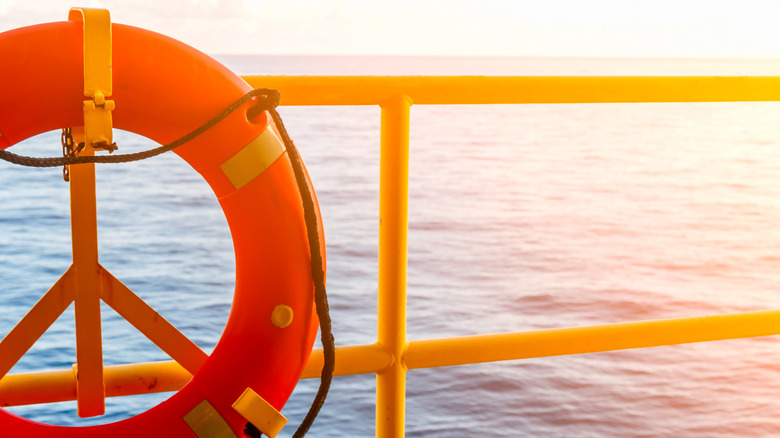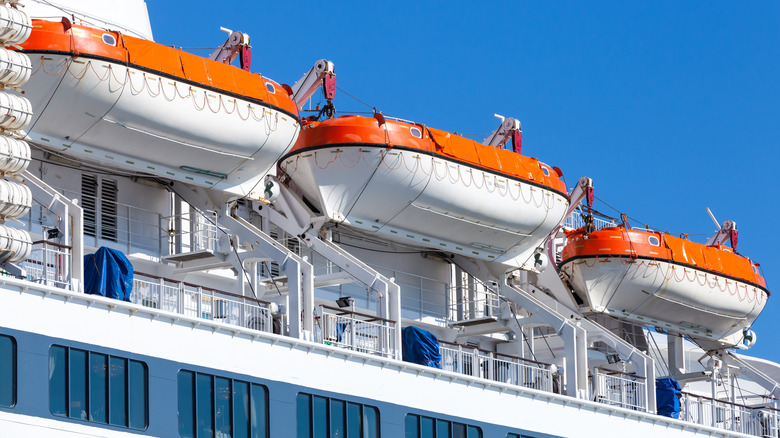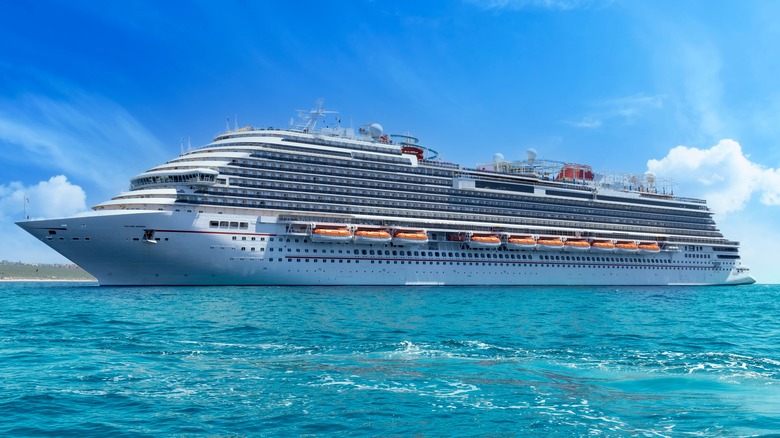Travel Guides Cruises
Matt Berry
Unfortunately, we all hear stories of someone going overboard on a cruise ship from time to time. “Man overboard” is a maritime term that, as you can probably guess, indicates that someone has fallen off the ship and requires rescuing. When a “man overboard” incident occurs, cruise ships implement an emergency protocol in an attempt to locate the individual.
While the chances you’d be on a cruise that requires a search and rescue attempt is very small, it is a possibility. Also, the chance you’d accidentally fall off a cruise deck is near-impossible. People who hear “man overboard” stories, but who’ve never been on a cruise, tend to envision someone leaning over the railing too far or slipping on a cruise ship pool deck into the sea. This just isn’t the case.
To reassure those who may be haunted by overboard stories and to inform those who like to prepare for all travel possibilities, we’re going to cover cruise ship safety measures and the protocols cruise ships typically follow in “man overboard” situations.
Accidental overboard situations are very rare

KhanunHaHa/Shutterstock
According to stats supplied by the Cruise Lines International Association (CLIA), there were 212 overboard incidents globally from 2009 to 2019 that involved either passengers or crewmembers. When you consider that 20.4 million people took a cruise in 2022 alone, 212 incidents mean that overboard situations are incredibly rare. Unfortunately, only 48 of the 212 people who went overboard were rescued. While rare, these incidents do make headlines and can make some would-be cruisers hesitant to set sail.
Cruise ships feature high railings pretty much everywhere, from the cruise decks to outside-room balconies. These railings are about chest-high on most passengers, meaning you won’t just lean on the railing wrong and fall into the ocean. In most cases, people accidentally go overboard due to climbing in a restricted area, usually after drinking too much. “I’ll stress that people don’t just fall over the side,” said Salerno. “There are railings and they’re pretty high. It’s almost always the result of an intentional act,” said Brian Salerno, the senior vice president of maritime policy at the CLIA, in an interview with USA Today. And this is true. The majority of overboard situations are intentional acts.
Your cruise ship may assist in the rescue

Eugenesergeev/Getty Images
In the unlikely scenario of someone going overboard, cruise ships follow a common protocol in an attempt to rescue the individual. First, when someone goes overboard, the ship’s bridge is hopefully notified immediately. To help ensure quick notification, the Cruise Vessel Security and Safety Act of 2010 requires U.S. passenger ships to “integrate technology that can be used for capturing images of passengers or detecting passengers who have fallen overboard, to the extent that such technology is available.”
However, in 2010, the technology wasn’t quite available, but over the last decade or so, many cruise lines began integrating thermal cameras and radar systems to better alert crewmembers of overboard incidents. Once the cruise ship’s officers are notified, they’ll immediately contact coast guard authorities. Your cruise ship may also participate in the search and rescue attempt by retracing its route and searching for the individual.
The cruise ship’s search will be called off when the person is found or the coast guard takes over. While most overboard situations are fatal, miracles do happen. Recently, a passenger on a Royal Caribbean fell over her 10th-deck stateroom balcony. Crewmembers were immediately notified, sent out a rescue boat, and after a 45-minute search, rescued the distraught, but otherwise unharmed, woman.
Man-overboard incidents are incredibly rare, and cruise ships are incredibly safe. If you simply follow the rules and use common sense, your cruise should be nothing but smooth sailing.

